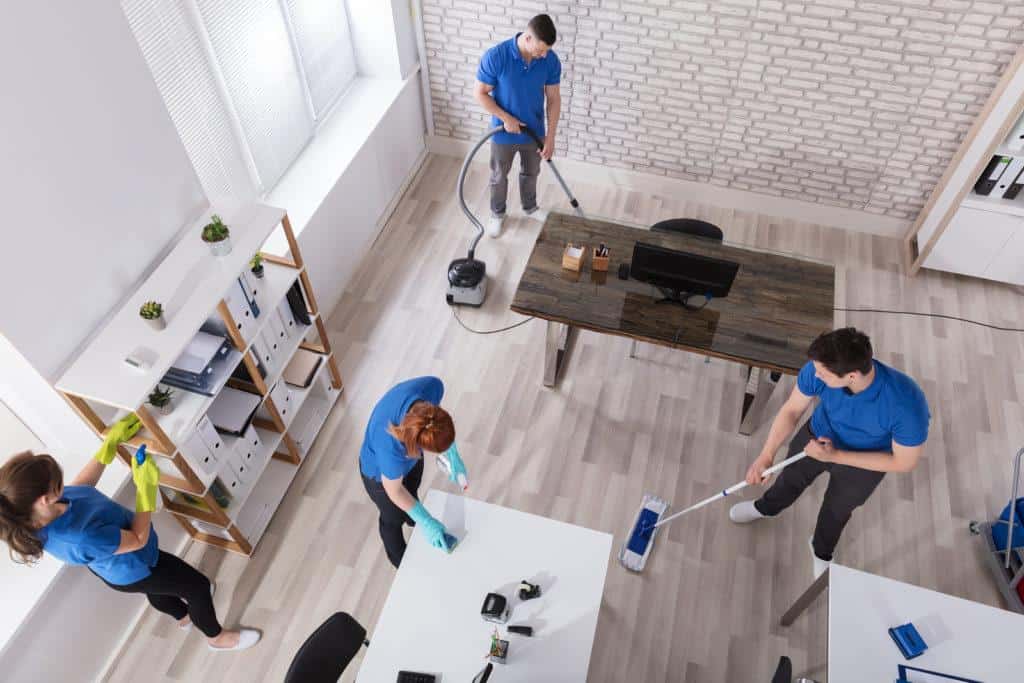Regardless of the size or type of your business, a clean and organized workspace is essential to maintain productivity and promote employee well-being. While regular cleaning tasks such as vacuuming, dusting, and emptying trash cans are necessary, they may not be enough to keep your office space in top condition. In this article, we will discuss why you should schedule regular deep cleans for your office space, how often it should be done, what areas require the most attention during a deep clean, and tips on making it a habit.
Introduction to Deep Cleaning and its Importance
Deep cleaning involves a thorough cleaning process that goes beyond routine maintenance tasks. It includes removing dirt, grime, and stains from hard-to-reach places, such as baseboards, ceilings, walls, carpets, and upholstery. A deep clean also entails sanitizing surfaces, including desks, countertops, doorknobs, and other high-touch areas that are prone to germs and bacteria.
The Benefits of Regular Deep Cleans in the Office Space
There are several benefits of scheduling regular deep cleans in your office space:
1. Improved Air Quality – A deep clean helps remove allergens, pollutants, and other contaminants that can negatively impact indoor air quality. This leads to healthier employees who suffer less from respiratory problems like asthma and allergies.
2. Reduce Sick Days – When an office environment is regularly cleaned and sanitized, there’s a reduced risk of illnesses spreading among co-workers. This means fewer sick days taken by employees, resulting in increased productivity levels.
3. Boost Morale – Employees tend to feel more valued when their working environment is clean and comfortable. A deep clean creates a positive atmosphere that boosts morale and increases job satisfaction.
4. Extend Equipment Life – Dust, dirt, and debris can cause equipment to wear out faster than expected. By performing regular deep cleans, you can extend the lifespan of expensive office equipment, reducing replacement costs.
How Often Should You Schedule a Deep Clean?
The frequency at which you should perform a deep clean depends on various factors, such as the number of people using the space, the level of foot traffic, and the type of industry you operate in. As a general rule, experts recommend scheduling a deep clean every six months to one year. However, some industries may need to schedule them more frequently due to specific regulatory requirements or higher standards of hygiene. For example, hospitals, laboratories, and food processing facilities typically have strict guidelines regarding cleanliness and must adhere to rigorous cleaning protocols.
What Areas of the Office Require the Most Attention During a Deep Clean?
During a deep clean, certain areas of the office require extra attention to ensure they are thoroughly cleaned. These include:
1. Carpeting and Rugs – Carpets and rugs trap dirt, dust, and other particles that can contribute to poor indoor air quality. Vacuum thoroughly and consider having them professionally steam cleaned.
2. Upholstered Furniture – Chairs and sofas can accumulate dirt, sweat, and body oils over time. Consider having them cleaned by a professional upholstery cleaner.
3. High Touch Surfaces – Doorknobs, light switches, and other high touch surfaces harbor germs and bacteria. Disinfect these areas with a strong cleaning solution.
4. Ceilings and Walls – Over time, ceilings and walls can become dirty and discolored. Use a ladder to reach high spots and wipe down with a clean cloth.
Conclusion: Making it a Habit to Perform Regular Deep Cleans
Scheduling regular deep cleans is crucial for maintaining a clean and healthy workplace. Make sure to choose a reputable cleaning company that has experience in commercial cleaning services. They can provide expert advice on how best to tackle different areas of your office space and suggest ways to improve overall cleanliness. Remember, creating a culture of cleanliness starts with setting up a regular cleaning schedule and sticking to it.

